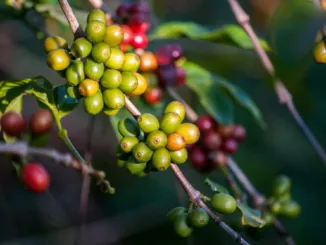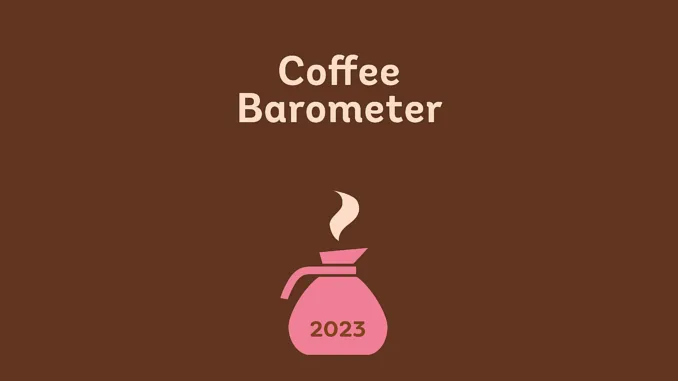
Join us as we meet the team behind Ethos Agriculture and take a deep dive into the 2023 Coffee Barometer.
BY VASILEIA FANARIOTI
SENIOR ONLINE CORRESPONDENT
I recently had the privilege of sitting down with Frederik de Vries and Sjoerd Panhuysen, two key members of Ethos Agriculture. This team of experts is reshaping the landscape of the coffee sector with a refreshing approach to sustainability.
For those of us immersed in the coffee sector, the name Ethos Agriculture has become synonymous with the Coffee Barometer initiative, produced through a collaboration between the Ethos team, Conservation International, and Solidaridad. The 2023 Coffee Barometer, encompassing 58 pages, delivers an unreserved evaluation of corporate sustainability in the coffee industry, and highlights the need for comprehensive reporting, improved due diligence practices, as well as transparency and a need for collaboration.
Today, we learn all about the team behind Ethos Agriculture and what motivated the company’s founding.
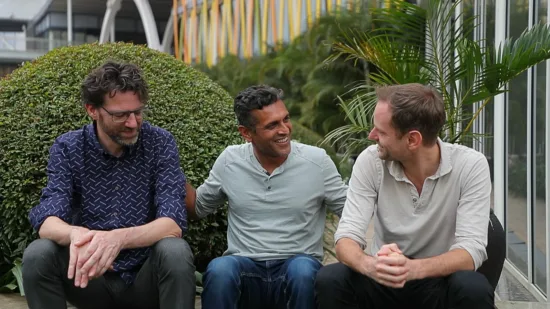
The Birth of Ethos Agriculture
Ethos Agriculture was born out of a shared vision among friends. It’s driven by a mission to promote sustainable trade approaches that fuse cooperative leadership, rural development, finance, market analysis, and data science.
Saurin Nanavati, the founder of Ethos, possesses a wealth of experience in both the coffee trade and social lending. Currently pursuing a Ph.D. in Transition Design, he envisions creating programs that amplify the voices of individuals frequently overlooked in supply chains. Frederik de Vries, a partner at Ethos, specializes in strategic partnerships, bringing a wealth of experience from his role as a global partnership program leader at Rainforest Alliance.
Sjoerd Panhuysen, a key figure in Ethos’ Research team, is a sociologist with expertise in international development organizations, and serves as the lead author of the Coffee Barometer. Eric Rukwaya, the associate for East Africa, contributes invaluable experience in collaborative development with coffee communities. Together, this dynamic team combines passion, expertise, and a shared commitment to fostering sustainability in the agricultural sector.
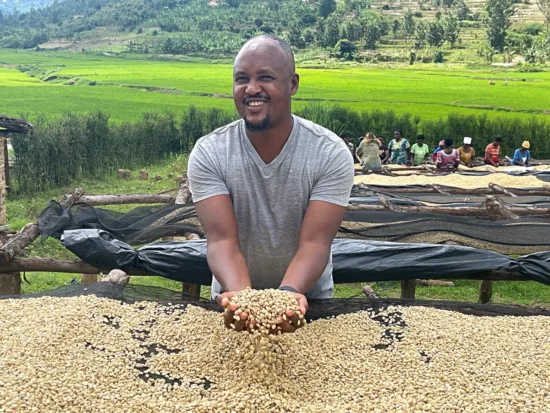
Weaving Sustainability into the Coffee Industry Fabric
The mission of Ethos Agriculture revolves around making sustainability an integral part of daily business practices. Sustainability is not an add-on or a side project; it’s woven into the fabric of their operations. “Transparency and inclusivity is also crucial in our approach, and we advocate for involving local stakeholders in project design and implementation, fostering a collaborative ecosystem,“ Frederik shares.
Ethos Agriculture primarily works with civil society organizations, NGOs, and governments, rather than private-sector clients. During the interview we delved into a comparison with other industries, where Ethos Agriculture acknowledged the advancements in sustainability discussions in sectors like cocoa and palm oil. “Coffee is making progress but still has work to do, particularly in areas such as living income discussions and traceability,“ Sjoerd pointed out.
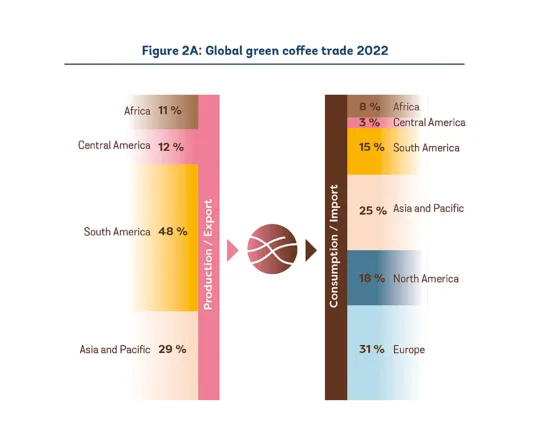
Insights from the 2023 Coffee Barometer
Key insights from the 2023 Coffee Barometer highlight that coffee production, undertaken by approximately 12.5 million farmers across 70 countries, is largely concentrated in Brazil, Vietnam, Colombia, Indonesia, and Honduras, contributing 85% of global supply.
The remaining 15%, managed by 9.6 million farmers, faces economic challenges as declining coffee farm revenues and rising input costs threaten their livelihoods. Additionally, despite efforts through multi-stakeholder initiatives, sustainability progress in the coffee sector remains limited. While some roasters display sustainability leadership, roasters’ efforts often fall short in practical implementation, lacking transparency, adequate funding, and fair compensation for the sustainability efforts of small-scale farmers.
In the course of reading the 2023 Coffee Barometer, my examination of its pages, filled with insights, challenges, and aspirations for a sustainable coffee future, led me to inquire about the origins of this impactful initiative. Frederik told me that the Coffee Barometer was an idea that Sjoerd first had back in 2006, as a response to the need for transparency in companies’ promises of sustainable coffee procurement.
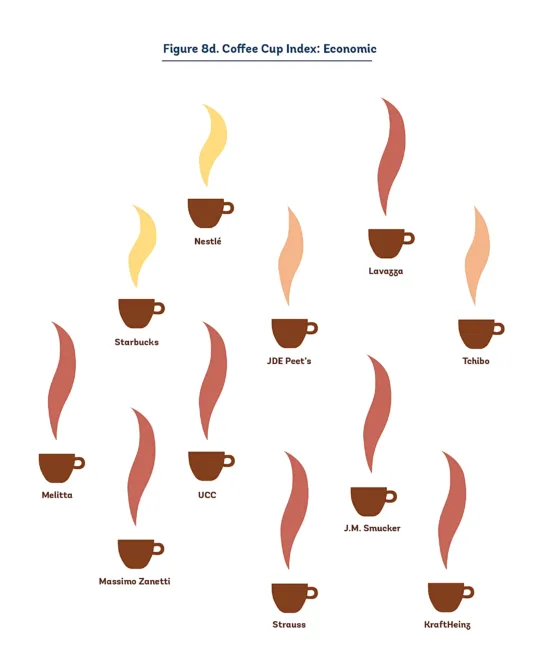
The Early Days of the Coffee Barometer
“It started as a tool that assesses and tracks companies’ progress in procuring sustainably produced or certified coffee. It’s a mechanism to hold companies accountable for promises made regarding sustainable coffee procurement,“ Sjoerd explains. Over the years, this initiative has evolved, focusing on different angles such as certification impact, coffee and climate change, and the effects of mergers in the coffee sector.
Over the years, Sjoerd has consistently released updated versions of the Coffee Barometer while representing various organizations. The most recent two editions were produced with him as part of Ethos Agriculture. What remained the same throughout all these versions is the primary focus on major roasting companies worldwide, examining their sustainability discussions, directions, and actual practices.
Stay tuned for the second part of this interview, where we’ll delve into the intricacies of the 2023 Coffee Barometer.
ABOUT THE AUTHOR
Vasileia Fanarioti (she/her) is a senior online correspondent for Barista Magazine and a freelance copywriter and editor with a primary focus on the coffee niche. She has also been a volunteer copywriter for the I’M NOT A BARISTA NPO, providing content to help educate people about baristas and their work. You can follow her adventures at thewanderingbean.net.
Subscribe and More!

Out now: It’s the December 2023 + January 2024 issue! Read it for free with our digital edition. And for more than three years’ worth of issues, visit our digital edition archives here.
You can order a hard copy of the magazine through our online store here, or start a subscription for one year or two.



